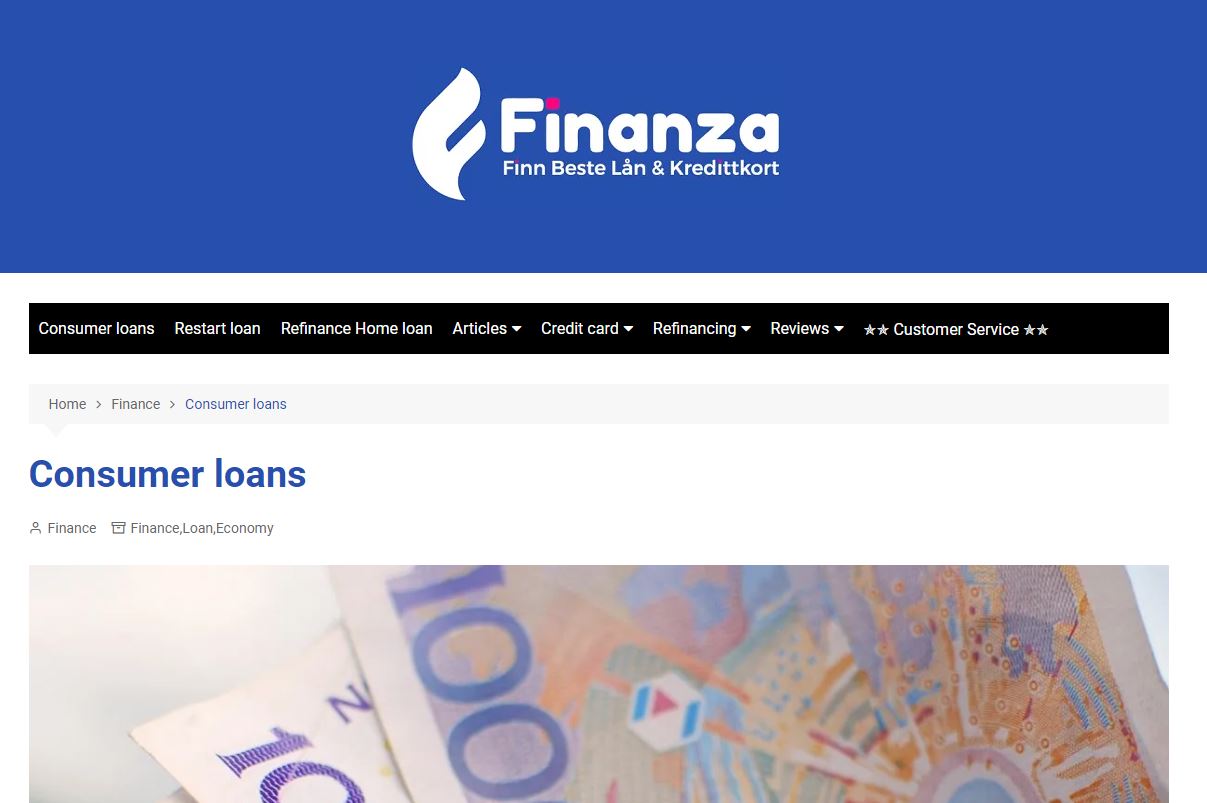If you are looking to get a personal loan, there are some things to consider before you apply. For instance, you should make sure that your credit score is in good shape. You should also look into the cost and requirements of the loan. In addition, you can ask someone to help you fill out the application.
There are many different types of personal loans. You can choose to consolidate your existing debts, refinance your existing debts, or even get rid of your credit card bills. Whether you are seeking a short term or long term forbrukslån, it’s important to know what you are getting into before you take out a loan.
Getting a credit report
Before applying for a personal loan, it’s a good idea to get a copy of your credit report. This will show potential lenders your history of repaying loans and how reliable you are. It will also help you identify any identity theft, which can lead to a lower score.
Credit reports are available free once a year under federal law. There are three nationwide credit bureaus, which collect information about credit history. They are TransUnion, Equifax, and Experian.
If you find any errors in your credit report, you should dispute them. You can send a letter to the credit bureaus to correct the mistakes. The credit bureaus must remove the inaccurate information from your report within a month or less. However, if the incorrect information is older than seven years, the bureau will need to investigate.
Evaluating costs and requirements
Whether you are looking to improve your home, grow your business, or pay off high interest credit card debt, a personal loan can help you get there. But before you apply for one, you should know what to look for. There are some guidelines that can make the application process go smoother. From there, you can start shopping around for the best rates and terms. Once you’ve found the lender that’s right for you, you’ll be well on your way to borrowing the money you need.
Before you apply for a new loan, make sure to scour the internet for the best deals. You’ll want to compare offers from multiple lenders, and you may be able to snag a rate that’s a full percentage point lower.
Including someone else on your application
Including your significant other in the loan application may seem like an oxymoron in today’s market, but you’ll be surprised at how well it can work out for the two of you. It’s also a good way to ensure you get the best interest rate possible. Plus, it’s a fun way to spend time together. Taking out a joint loan can be a great way to bond over the good times and the bad.
While you’re at it, you might want to check out a personal loan calculator to see just how much you can afford. A good lender will not only show you the big picture, but also the little details you’ll have to live with. You’ll find that the most affordable monthly payments aren’t that far off from what you’re currently spending.
Getting a better rate on credit card debt while you pay it off
There are a variety of options to help you pay off your credit card debt. One of the most popular ways is to take out a personal loan. This can be done through your local bank or credit union.
Personal loans can be a good way to get a lower interest rate on your credit cards, which can allow you to pay them off faster. However, they can also be very expensive. You need to do your research before taking out a loan.
Credit cards tend to carry high rates of interest, which makes them more expensive to own. While you can try to get a lower rate on your cards, you may not be able to make it work.
Some lenders charge origination fees. These fees can range from 1% to 8% of the total loan amount. They can also be higher if you have a bad credit history.
Consolidating existing debt with a personal loan
If you’re having trouble paying off multiple debts, you may consider consolidating them with a personal loan. This will simplify your finances and make it easier to make your monthly payments. But be sure to consider the advantages and disadvantages before choosing to consolidate.
The most important advantage of using a personal loan to consolidate your debt is that it will reduce your interest rates. You might not save a lot of money by taking out a loan to pay off a handful of debts, but you could save hundreds.
Another benefit is that it can help your credit score. As long as you make your payments on time, you can improve your utilization ratio, which helps your credit score. It’s also possible to get a balance transfer credit card that can help you move balances to a lower-interest account.
Pay for unplanned expenses
If you’re looking for a smart way to pay for an unexpected expense, you might want to consider taking out a personal loan. This type of loan is typically a lump sum, and is repaid over fixed monthly installments. Most lenders will require proof of income, and may charge a fee or two. The benefits of a personal loan can be significant, especially if you’re in a financial pinch.
Having a solid emergency savings plan is the first step to putting yourself in a better position should the unthinkable happen. Putting money away with every paycheck can help you save for the unexpected, and will make you feel more secure when it comes time to pay for an unexpected bill. While you’re at it, make sure your credit score is in good standing, as well. A recent study found that 39% of Americans are having trouble covering a $400 or so bill.
The best way to do this is to make a list of all the bills you have to pay, and set a budget for each. This will ensure that you’re not left with a mountain of debt at the end of the month.
Consolidate or refinance existing debt
Debt consolidation with a personal loan can be a great way to help you get out of debt and manage your finances. The process involves combining your debts into one payment and making them easier to manage.
If you’re able to get a lower interest rate, this could save you a lot of money. However, you might not qualify for a lower interest rate if you don’t have a good credit history. You’ll also want to have a plan to pay off your loans in a timely manner.
If you’re considering consolidating or refinancing, it’s a good idea to make sure you understand your options and have a clear plan for how you’ll pay off the loan. For example, you might be able to use your home to repay your debt, which would make your monthly payment much lower.
Likewise, a home equity line of credit (HELOC) can be useful as well. A HELOC acts like a credit card, except you don’t have to worry about high interest rates. Instead, you can use the money to do home repairs, pay for your children’s education, or take a vacation.
Get rid of credit card or other high-interest debt
One of the best ways to get rid of credit card debt is to use a personal loan. A good one will pay off your balances in the shortest amount of time. Often times, a personal loan offers a better interest rate, which can save you a lot of money in the long run.
Credit cards typically have very high interest rates. Using a personal loan for debt consolidation can save you a lot of money in interest. Plus, a personal loan can be used to pay off multiple credit card debts at once.
Another benefit of consolidating your credit card bills is that you will have a single bill to pay each month. This is great for keeping track of your finances. With several credit cards, you may not know when you are due for a payment. And, if you miss a payment, you can face a huge late fee.
Depending on your credit score, you may not qualify for a new line of credit. However, you can get a home equity loan, a debt consolidation loan or a retirement account loan. Each option has its pros and cons.
Repayment timelines
The length of time you will take to repay your personal loan can depend on a variety of factors. The most common repayment period is two to five years. In addition, the total amount of the loan and the interest rate you’ll pay can also affect the length of your repayment period. If you are not able to make your payments on time, contact your lender immediately. They will work with you to help you come up with a plan to continue making your payments.
When you miss a payment, your credit score is affected. Typically, the first missed payment will drop your credit score by 110 points. If you miss more than 60 payments, your credit score will drop again. Once your credit score drops by 90 points, your lender will begin to investigate your situation and attempt to settle the debt with you.



